The Ultimate Guide to Creating a Blog Business Plan (Updated)

What sets apart the top-tier blogs in every industry and the blogs most people run? What's the difference between success and mediocrity? As often as anything, the answer is a business plan.
When many people start a blog, they don't have a goal, plan, or drive to succeed. They might know some of the basics of how a blog can be a business. They might know some of the elements of SEO, something about marketing, maybe they've read about maintaining a schedule, and an assortment of other tips and tricks for blogging success.
Few people realize that developing and adhering to a business plan is critical if you want your blog to succeed. You can't simply write some content every week and expect to compete on par with industry giants. Even if you keep at it for years, you might never make a break-even point, let alone a successful brand.
What is a business plan? It is many things.
- A business plan is a roadmap. It guides your business from A-B-C and beyond, with each milestone marked as a tangible goal or achievement.
- A business plan is a tangible document. It's something you can open up and reference to ensure that you're keeping your business on track.
- A business plan is for accountability. You have tangible goals and a roadmap to achieving them. If you fall behind or veer off track, your business plan holds you accountable.
- A business plan is priorities. It's a document that helps you guide your efforts to know what to do next and where to spend your energy.
- A business plan is a prediction. No business has smooth, even growth. There will always be ups and downs, challenges and problems to solve along the way. A business plan helps you predict what and when those challenges may occur.
How do you, a newcomer to blogging (and someone using a blog for their business), go about creating a business plan for a blog?
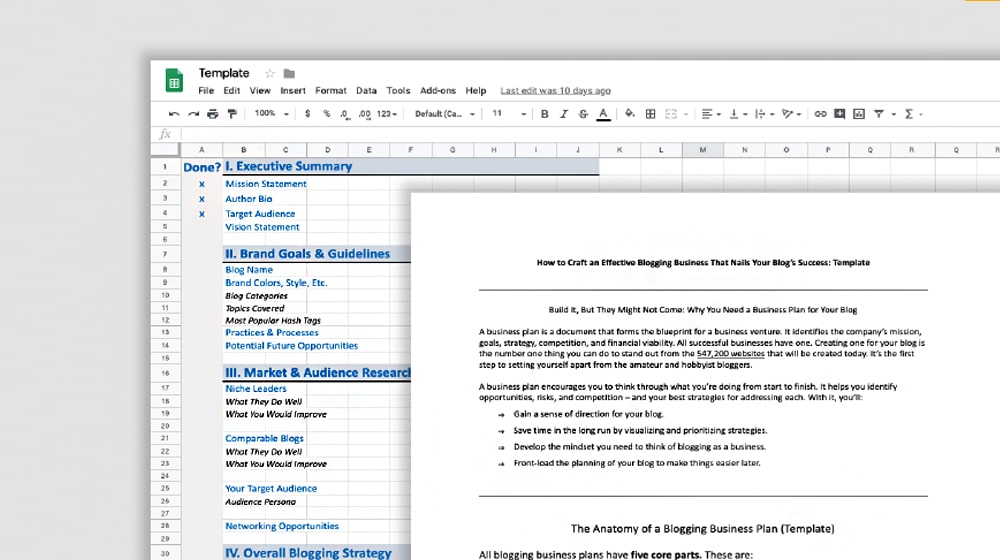
Business plans vary as widely as business owners do. Some businesses run on a single-page document of outlines and a bunch of information in the CEO's head. Others have comprehensive living documents filled to the brim with details, guiding every move the business makes. Most are somewhere in between.
Before you can start making a business plan, you need to know what goes into one. What I've done here is pared down many of the business plan examples I've seen online and added some missing steps to create something that is "middle of the road," so to speak. It's not the most comprehensive and detailed business plan, but neither is it the simplest. You can feel free to pick and choose what ends up being the most useful to you.
For example, if you're starting a blog, how important is setting up a members-only area, subscription service, or affiliate account? In your first month, it's not very important; your first goal is to get traffic because monetization strategies aren't actualized until you have some.
 30 Second Summary
30 Second Summary
You need a business plan to turn your blog into a successful business. Your plan should include a clear mission statement that shows why your blog exists and what makes it unique. You have to know your competition and target audience inside out to stand out. You should build a solid content pipeline with topic research, writing and editing steps. Your content needs to match what your readers want and fill gaps other blogs miss. You have to also actively promote your work with SEO, social media, email lists and paid ads to get traffic. Track your progress with specific, measurable goals to stay on course.
Blog/Brand/Executive Summary
First up, we have the executive summary. While this might sound fancy and over-the-top for a one-person operation like a new blog, it's a pretty critical part of a business plan.
What is it?
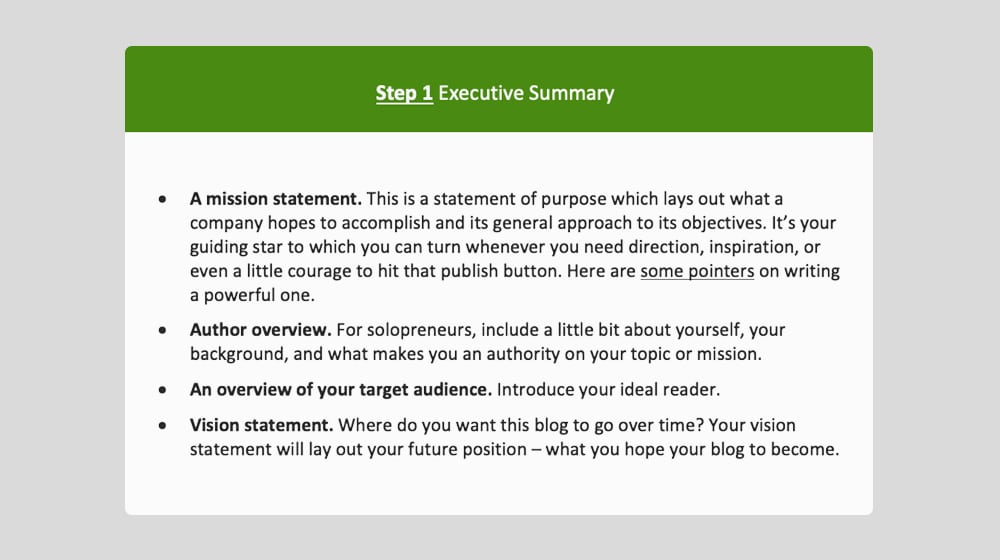
Simply put, it's your elevator pitch, your vision, your reminder to yourself of what your blog is and what purpose it serves. It can include elements such as:
- A mission statement. Why did you make your blog? What is your goal? What do you want your blog to look like when it's successful?
- A growth summary. If you're starting a blog from scratch, you don't have milestones yet - you can ignore this for now. If your site has been around for a while, this is where you chart out your existing growth milestones. When did you first start to see organic traffic? When did you make your first sale? You can use this as a motivating force, too.
- A monetization summary. How do you want to monetize your blog? You don't need to go into great detail here; note down the methods you want to use. Display ads, affiliate links, sponsored content, product sales, services, consulting; there are tons of monetization options, and this is where you list what you want to use (and what you don't).
- A goals list. Later on, you can talk about SMART goals, but you're just listing your pie-in-the-sky goals here. Do you want to make a living? Do you want to get links and citations from major publications? Do you want to network with your favorite bloggers in the industry? This list is where you outline the goals that make you think "I made it" when you achieve them.
Remember, none of this needs to go into great detail. It's an overview, a summary, and it doesn't need to be anything more. That's what your business plan is for; remember, this plan is for your blog.
Your Unique Value
Next up, you need to dig deep and consider what you have to offer to the world via your blog. What are you bringing to the table that makes people want to follow you, read your content, partake in your monetization strategies, and otherwise make your business a success?

Again, we're still thinking in more general terms, not deep specifics. You can dig into the specifics later when you do competitive analysis and take a look at the niche and industry you're entering. So, some ideas to get you started:
- You offer unique insight and information about your topic based on your own experience.
- You offer a look at a newcomer's journey from start to finish that others can use as an example.
- You have a new and innovative product you want to bring to market.
- You can offer an existing product presented in a new and exciting way or for a lower price or higher quality than what already exists.
- You have a unique perspective on your industry based on your demographics, past experiences, or situation.
These ideas exist to get you started as much as anything. Some of these apply more to businesses that want to sell a product and use a blog to do it. People who want to be bloggers and make a living on the side might not have goods in mind. There are many potential unique selling points, so feel free to dig deeper into the subject with posts like this:
Competitive Analysis
What is your niche? Are you starting a food blog? A marketing blog? A blog about sports? Music? Any topic you can imagine is something you can write a blog about, so long as you have the expertise to fuel it, or at the very least the interest to learn. Hobbies, careers, it's all viable. There are people with incredible, insightful, and fascinating blogs about organic chemistry, nitty-gritty marketing subjects, and other narrow niches.
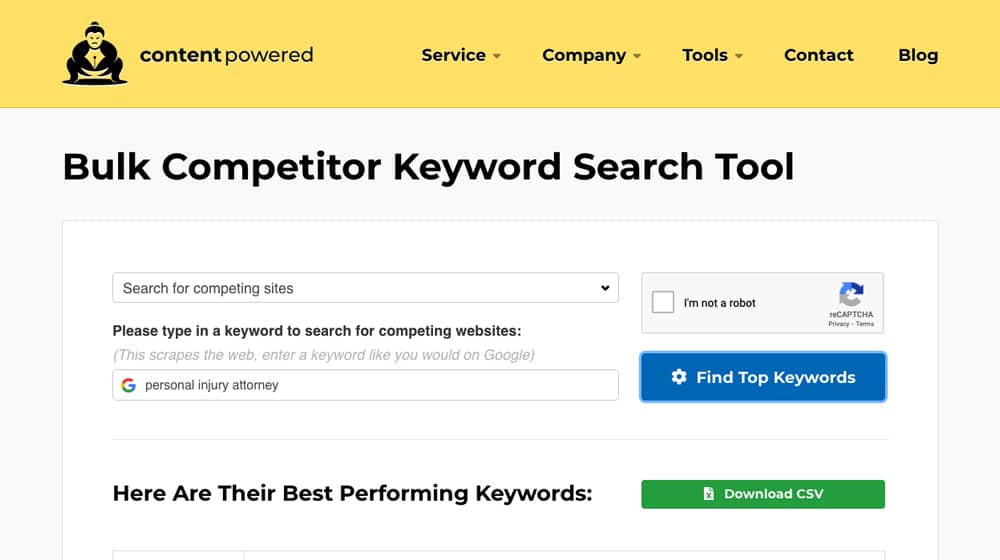
The key isn't just knowing what your niche is; it's about knowing who else is competing in your industry. Performing detailed competitor analysis allows you to build an awareness of the field and figure out who you're competing with and aspiring to be.
Before I dig into how to do this, it's worth mentioning that this can change over time. Your focus and direction within your niche can change in response to your interests changing, the interests of your audience changing, and the industry as a whole changing. Your competitor analysis is, as I mentioned up above, a living document. Things change; you need to change with them.
The actual process for competitive analysis can be somewhat complicated. I'm going to simplify it a bit here under the assumption that you're just starting with a blog and business plan, so you might not have a lot of information when you first start. Once you grow and begin to find your feet, you'll be able to refine this. Competitive analysis is something you should often do because competitors come and go.
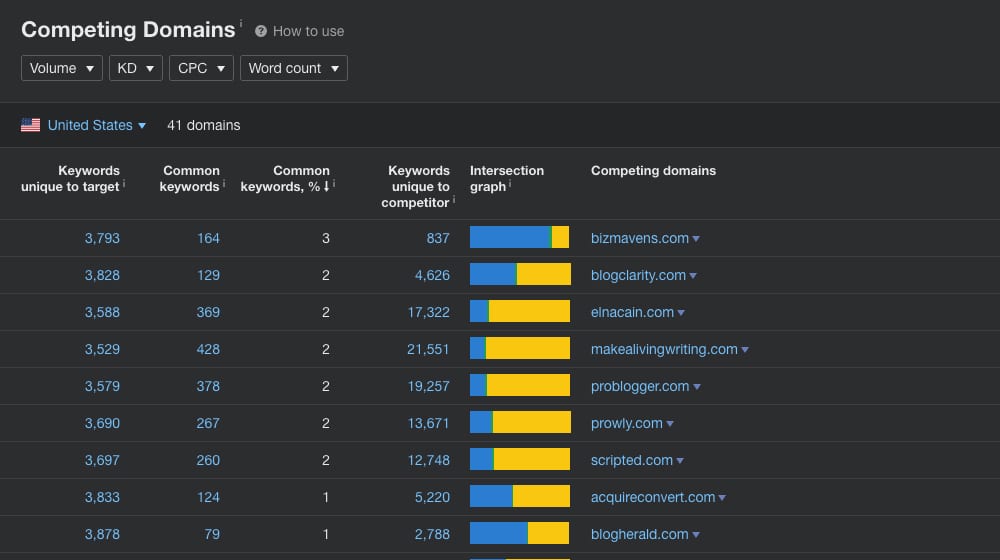
If you want a more refined look, HubSpot has a great guide here:
In short, you need to:
1. Figure out who your competitors are. Identify as many other blogs in your niche as you can, from other small-scale blogs to the giants in the industry.
2. Figure out the scale of your competitors. Rank them; ones who are smaller than you, ones on par with you, larger than you, and as many tiers larger as you feel like dividing them.
3. Pin down information about your closest competitors. What do they do to monetize? How often do they produce new content, and of what quality level? How do they advertise their blog and their products? What sort of holes in their strategy can you identify and potentially be able to exploit?
4. What kind of audience is the competitor targeting, and how engaged are they?
If you're starting with a brand new marketing blog, don't make the mistake of digging into analysis for "competitors" that aren't your competition. For example, you're more likely to analyze me than you are HubSpot, Neil Patel, or Moz.
Audience Definition
Armed with information about your competitors, niche, and industry, you can now start to do audience definition. If possible, you're going to want to build up a list of audience personas. These are sort of like "character sheets" for archetypal examples of a blog reader. Who are you going to try to target with your blog? The single mom, the college student, the theater performer, and so on.
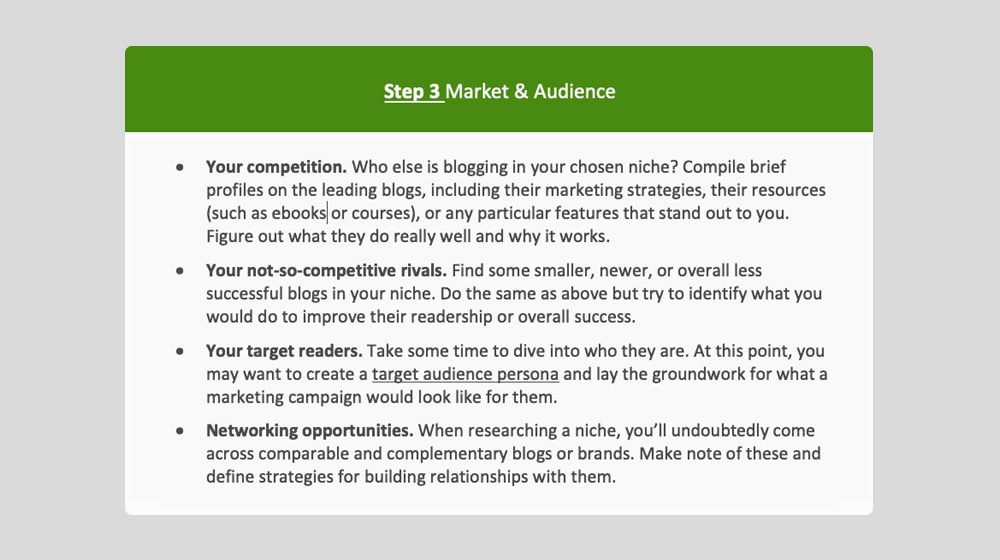
What sort of information is helpful?
- Different age groups like other kinds of content and have different types of interests. Older people might like a more formalized language, for example, and might not get video game references.
- You want to relate to your audience, so knowing the kinds of careers they have can help. A food blog creating elaborate, time-consuming recipes won't resonate with an audience of people who have 10 minutes to cook dinner.
- Understand your visitor's goals. Why is this person visiting your site? Do they want to be educated, need a tutorial for a task, or are they just interested in the subject and want to read about it?
- Other demographics. Gender, sexual identity, general location, income level, marital status; again, all of these help you relate and resonate with your audience and fulfill your reader's needs in a way that keeps them coming back.
Your personas can be as elaborate or as simple as you want to make them. They're also just guesswork, at least initially. If you don't have traffic, you don't have an actual audience to measure, after all. These guesses are just examples of who you want to target. Then, once you have some traffic, you can see who you're attracting and adjust accordingly.
Content Production Pipeline
In my mind, the most critical part of a business plan is establishing a content production pipeline for your blog content. From start to finish, you should have a defined methodology for creating your content.
The number one most critical aspect of content production is topic ideation. You can spend a decade writing content in a niche, but if you're writing random topics that come to mind, you might never resonate with other people, never get picked up by Google, and never have any success.
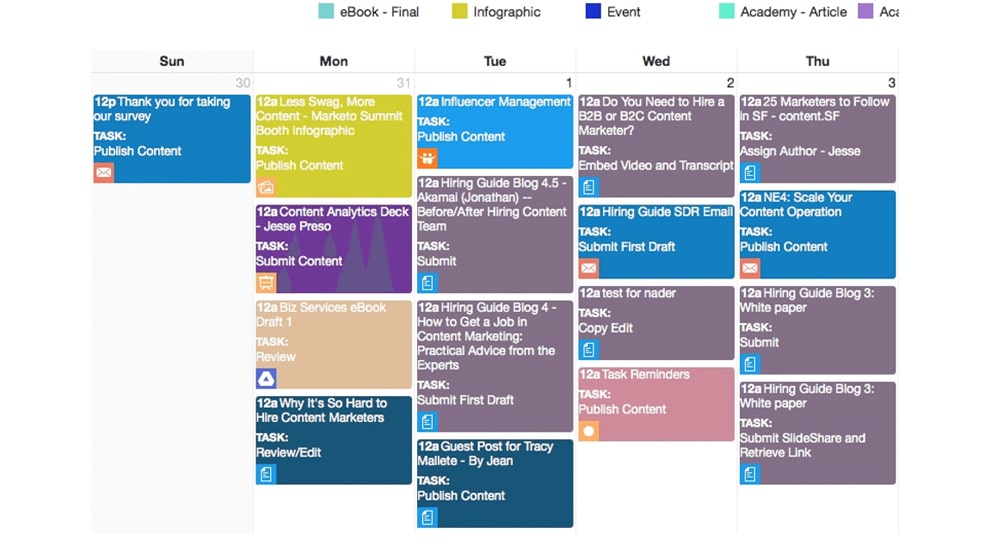
Every good blog post needs to recognize three things. First, it needs to understand the topic it's covering. Second, it needs to know the audience it's targeting. Third, it needs to grasp the intent of the audience. All three of these combine to create a good blog post.
The audience and their intent can define one subject. For example, let's take a food blog's post about dinner. Your topic is, in general, dinner meals.
- An audience of nutritionists might have questions about the importance of eating dinner, what nutritional profiles it should fit, and how different diets compare.
- An audience of food lovers might be interested in elaborate recipes with stunning presentations that they can replicate or enjoy vicariously.
- An audience of busy working adults might be interested in quick and easy dinner recipes they can follow to make a quick family meal in under an hour.
Thus, by learning who the audience is and what they want, you can shape your content to improve engagement and user experience.
Should it be educational? Should it be deep or superficial? Should it be instructive? All of these have their roles, which is why you need to know what you're producing.
For your blog to perform, it's also necessary for you to focus on competitive topic analysis. You're not the only one covering this topic and probably not the only one targeting this audience with it. How do other blogs compare? Are they shorter, lower-quality posts or longer, high-quality posts? Are they deep or broad? Are the sites that are surfacing small or massive? Did they leave anything out, or can you expand on this topic and create a much better version?
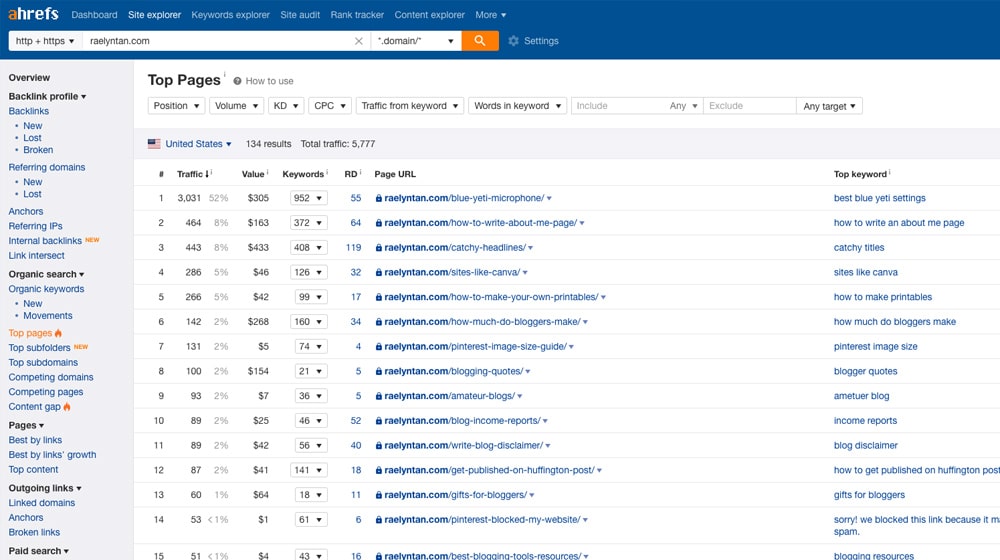
You can also analyze the core keyword of the topic. Specifically, you're looking for subjects that strike the right balance between search volume and competition. A blog topic with too much competition will be impossible to rank for, and a blog post that doesn't get any organic traffic is a failure in my eyes. A topic with too little search volume will get you little or no traffic, even if you rank #1 for it. It would help if you found something in the middle.
From there, your content production pipeline gets into the actual details of production. Here's my general process:
- Begin with topic ideation, as mentioned above.
- Do the research and generate a compelling headline.
- Create an outline for the blog post.
- Flesh out the outline, rearrange sections into a logical order and write the post.
- Edit the post for spelling, grammar, factual information, consistency, and logical flow.
- Add formatting; headings, bold/italics/underlines, symbols, lists, etc.
- Create images. All good blog posts need solid pictures and preferably unique ones.
- Review the post for SEO factors, such as keyword usage, links to other blog posts internal and external, calls to action, and so on.
- Publish the post, or schedule it as part of a backlog for a consistent schedule.
At any given time, I have articles in nearly every stage of this pipeline. I can start and stop as necessary by establishing a defined calendar and maintaining a constant production flow.
A defined pipeline like this also allows you to offload some work to freelancers, contractors, or employees as you grow. For example, you might do your topic ideation and outlining and then hand off the actual writing to a writer, do the editing and formatting, hire someone for graphic design, and do your SEO review and publishing.
Promotion Strategy
Blogs don't work on their own. There's no Field of Dreams-Esque "If you build it, they will come" effect going on. No, the internet is far too packed with content for that to work these days. Today, you need to promote your blog, which means developing a promotion strategy. Your blog business plan should include your primary, secondary, and tertiary promotion strategies in organic and paid methods.
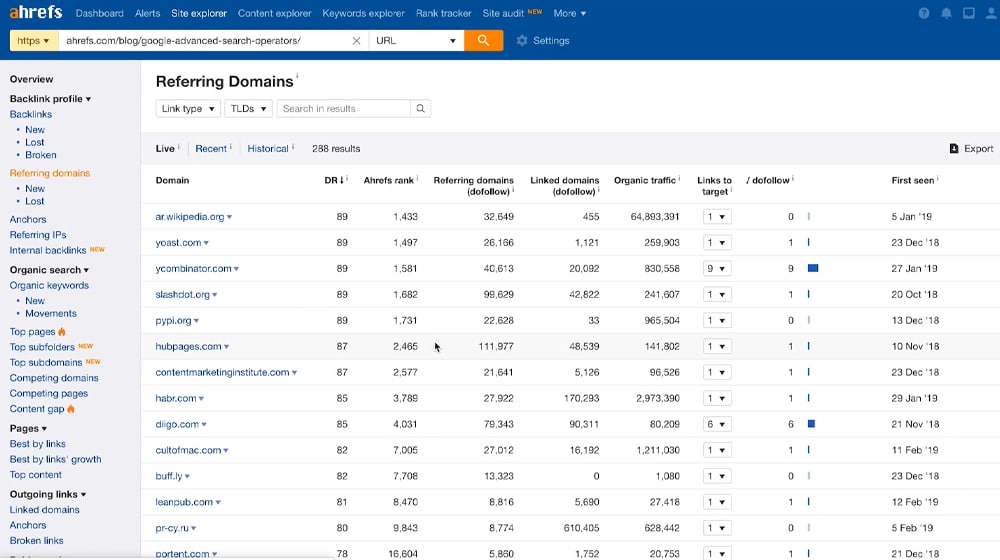
I'm not going to go too deep into specifics about promotion, but here are strategies you can use for ideas and research more into how to do them effectively.
- Paid marketing. Paid ads, sponsorships, paid promotion on social networks; spending money gets you results, as long as you have the money to spend.
- Attract the attention of Google. You want your articles to get ranked for their respective topics and keywords to earn some organic traffic. This one is essential for every blog and the real reason most people start a blog in the first place.
- Link building. One of the core pillars of SEO is links pointing to you from other relevant sites. Getting those links can be complicated and is an industry in and of itself.
- Influencer marketing. This strategy involves networking with influential content creators in your niche, particularly those with active social network audiences.
- Social media posting and sharing. Facebook, Twitter, Pinterest, Instagram, LinkedIn, Reddit, Imgur, YouTube; any relevant social network can be a source of traffic when you promote yourself using the site.
- Content repurposing. A blog post doesn't need to stay a blog post. You can use it as a basis for other forms of content, including videos, podcasts, infographics, and more.
- Newsletter marketing. Building up a newsletter and actively using it is a powerful technique that many bloggers ignore for far too long.
Promoting your content is how you grow. Without it, you're just howling into the void.
Timeline Estimates
Another element of a blog business plan is establishing a timeline. Timelines are flexible, but you can estimate how your blog will grow and set goals to reach specific milestones with SMART goals.
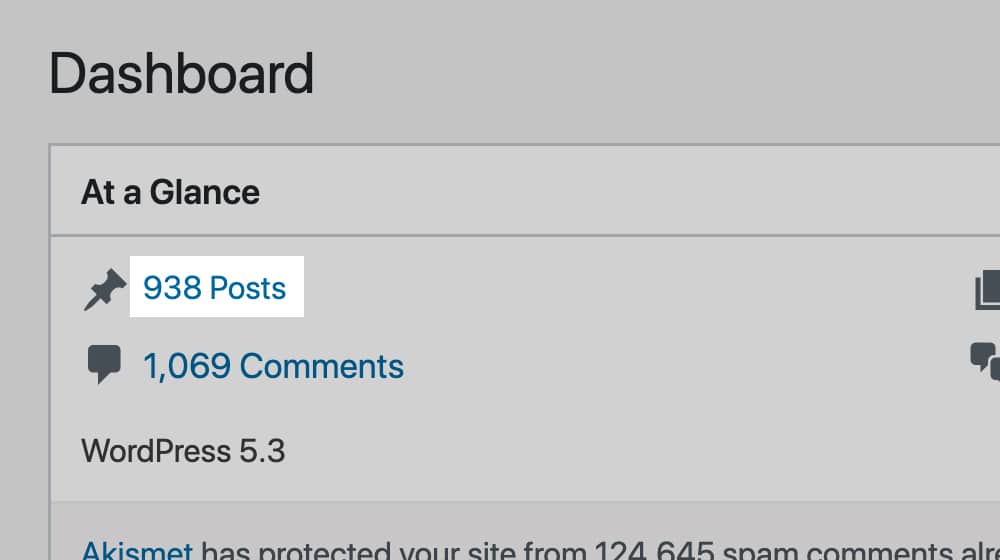
SMART goals are Specific, Measurable, Attainable, Realistic, and Time-Sensitive. SMART goals mean that you can pin them down, measure them, and set them as specific goals with a success or failure attached to them.
A non-SMART goal would be :
"I want to grow my blog."
A SMART goal would be:
"I want to reach at least 100 monthly active users by January 1, 202x."
Developing a timeline helps you set goals and progress towards them, with the added benefit of allowing you to reevaluate and adjust your strategy if you achieve them much earlier than (or fail to achieve them by) the original estimated goal date.
Wrapping Up
While creating a business plan for a blog might sound like unnecessary work, it separates real bloggers from hobbyists. Don't get me wrong; if all you want to do is write about your life in a format you can share with friends and family, that's fine. But, if you're going to earn a living from your blog, you need to treat it like you would anything else you make a living through.
Take it seriously, and your blog will reward you for your effort.



 30 Second Summary
30 Second Summary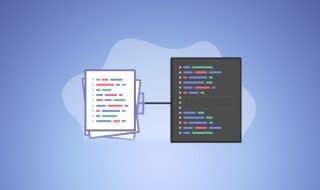

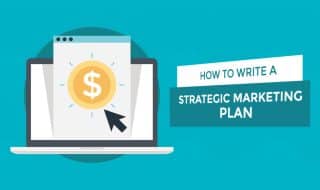

March 09, 2022
Awesome guide! Extremely useful for a newbie like me.
March 10, 2022
Thanks Tom! Good luck with your new blog 🙂 feel free to reach out if you have any questions.
March 23, 2022
What other things should I keep in mind transitioning from writing on a personal blog to a business blog?
March 25, 2022
Hey Blake!
I think successful blog marketing can be broken down into two categories; research and execution. One falls flat without the other.
Here's an article I wrote on research:
https://www.contentpowered.com/blog/blog-topic-ideas-tools/
Here's an article I wrote on execution:
https://www.contentpowered.com/blog/blog-optimization-tips-seo/
These two should help you out quite a bit!
March 25, 2022
Hey Blake!
I wrote a great guide on this here, focused on business blogging:
https://www.contentpowered.com/blog/write-first-blog-post/
The most significant shift between a personal blog and a business blog is the increased importance of choosing the correct blog post titles.
Traffic volume, pain points, and conversions aren't always as crucial with a journal or a for-fun blog.
With a business blog, those things are essential.
Here's a guide that I wrote on how to find great blog post titles: https://www.contentpowered.com/blog/blog-topic-ideas-tools/
I hope this helps!